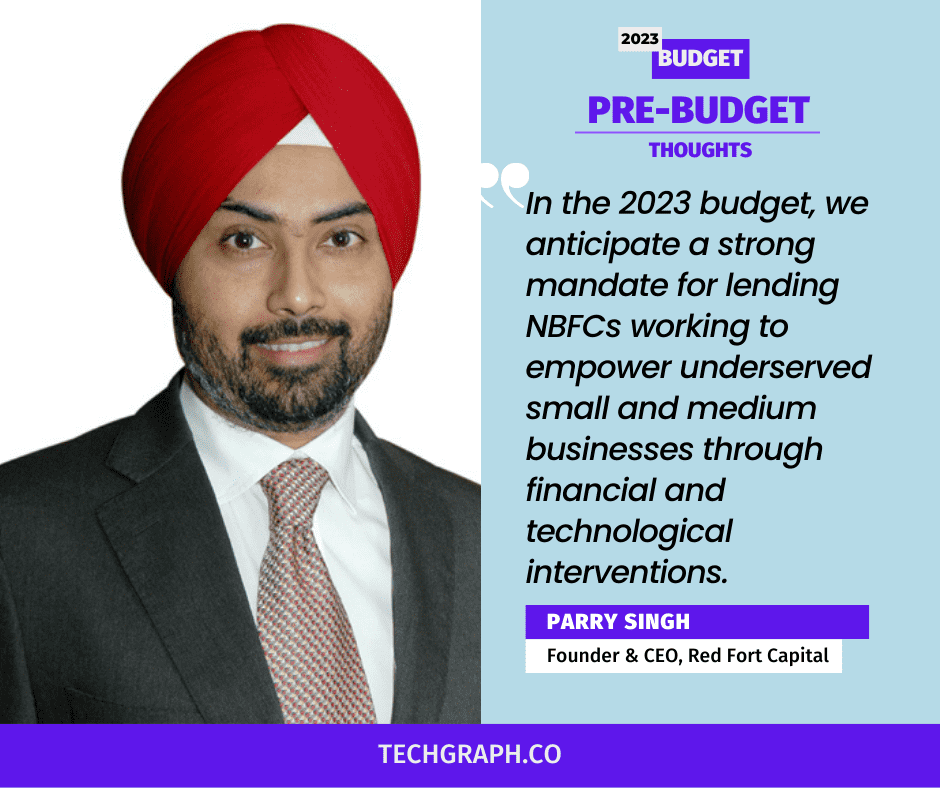As the Union Finance Minister Nirmala Sitharaman, is all set to present the Indian Budget for 2023-24, we reached out to Parry Singh, Founder, and CEO, of Red Fort Capital to understand what the NBFC sector is expecting from the upcoming budget.
In his comments about the Union Budget 2023-24, Parry Singh, Founder & CEO, of Red Fort Capital said, “Non-Banking Financial companies (NBFCs) play a pivotal role in facilitating faster economic growth. Therefore, the government should make bold moves to encourage banks to increase the quantum of funding for NBFCs. In the 2023 budget, we anticipate a strong mandate for lending NBFCs working to empower underserved small and medium businesses through financial and technological interventions.”
“We anticipate some relaxed tax regulations and liquidity assistance for NBFCs. Thus, NBFC taxation must be brought up to par with that of banks. Over time, the RBI has tightened the NBFC regulatory framework, particularly for large and deposit-taking NBFCs, and brought it more in line with bank regulations. However, tax laws have not kept up, and as a result, NBFCs face higher tax costs or compliance burdens than banks in several areas,” he said.

“NBFCs anticipate a more accommodating compliance framework to provide credit to unbanked and underbanked MSMEs and small business owners and bring them into the official lending system,” Singh added.
Continuing with his expectations, Parry Singh added, “Non-banking financial companies (NBFCs) have long complained that restrictions similar to those imposed on full-fledged banks are reducing the benefits of NBFC status. The industry anticipates that the government will put pressure on the RBI to relax industry regulations. However, there are other factors at play as well.”
“The industry is hoping that the government will standardize taxation and recovery policies. It anticipates tax relief by exempting NBFCs from paying tax on source-deducted income from securitization. A more flexible and cost-effective financing source for NBFCs is also urgently required,” Singh said.
“It makes sense to treat NBFCs similarly to banks in some areas to maintain Non-Banking Financial Companies as a crucial layer in formal finance. We look forward to enhancing Recovery Policies, Leverage and ease limits, as well as simplifying compliance and taxation similar to banks,” Singh further added.




